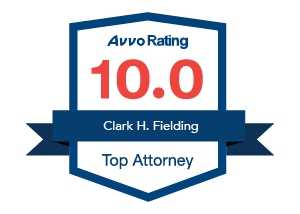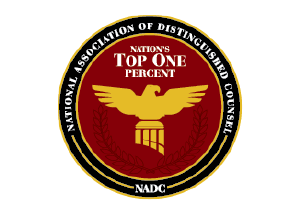Suffering a brain injury or Traumatic Brain Injury (TBI) can be a life-altering experience, demanding not just medical attention but also legal advocacy. At Fielding Law, we specialize in personal injury cases, providing unwavering support to those grappling with the aftermath of brain injuries. Our commitment goes beyond legal representation; it extends to empathetic understanding and a determination to secure justice for our clients.
What to Do after a Traumatic Brain Injury (TBI)
- Seek Immediate Medical Attention: Prioritize your health by seeking immediate medical care, even if the head injury seems minor. TBIs can have delayed symptoms, and swift intervention is crucial for early detection and treatment.
- Document the Scene and Incident: Preserve evidence by documenting the accident scene. Take clear and comprehensive photographs, noting any hazardous conditions or contributing factors. Collect contact information from witnesses who can provide statements regarding the incident.
- Keep a Personal Journal: Record your observations and experiences related to the TBI. Document symptoms, changes in daily activities, and any impact on work or personal life. This personal journal can serve as valuable evidence in legal proceedings.
- Follow Medical Advice: Adhere to medical recommendations and treatment plans provided by healthcare professionals. Consistent medical documentation strengthens your case and demonstrates your commitment to recovery.
- Notify Relevant Authorities: If the TBI resulted from a car accident or other incident, report the incident to the relevant authorities. Obtain a copy of the official report, as it can be crucial for legal proceedings.
- Preserve Medical Records and Bills: Keep thorough records of all medical evaluations, treatments, and associated expenses. This documentation provides a clear overview of the impact of the TBI on your health and finances.
- Consult with Fielding Law – Call 833.88.SHARK: Contact Fielding Law for a free consultation. Our experienced legal team specializes in TBI cases and will provide personalized guidance on the next steps. We ensure your rights are protected and work towards securing the compensation you deserve.
Remember, timely and thorough actions after a TBI contribute to both your recovery and the strength of your legal case. Fielding Law is here to provide the support and expertise needed during this challenging time. Call 833.88.SHARK for compassionate and effective legal representation.
Categories of Brain Injuries
The severity of brain injuries varies, with impacts sometimes going unnoticed initially, leading to delayed recognition of the need for medical care. Prompt medical assessments are crucial following any head impact. As outlined by the Centers for Disease Control (CDC), the types of brain injuries include:
- Mild: An impact on the head can result in the brain moving within the skull, causing damage to brain cells. Symptoms of a mild brain injury, or concussion, encompass sensitivity to light, dizziness, fatigue, nausea, vision issues, memory problems, anxiety, irritability, emotional challenges, sleep disturbances, and headaches.
- Moderate: A moderate Traumatic Brain Injury (TBI) can pose a lifetime of challenges, health issues, and necessitate ongoing treatment. Symptoms may include loss of consciousness, persistent headaches, vomiting, nausea, convulsions, seizures, inability to wake up, loss of coordination, confusion, agitation, aggressive behavior, slurred speech, or coma.
- Severe: A severe TBI presents alarming symptoms, including severe headaches, loss of vision, slurred speech, convulsions, dilated pupils, vomiting, numbness in limbs, lack of coordination, agitation, confusion, loss of consciousness, coma, and a vegetative state.
Recognizing and addressing these symptoms promptly is critical for effective medical intervention and legal support. If you or a loved one has experienced a brain injury, contact Fielding Law for expert guidance and compassionate representation.
Assessing Compensation for Brain Injuries at Fielding Law
Given the prolonged and often life-altering impact of brain injuries, determining their compensation necessitates a comprehensive evaluation. The initial step involves a thorough medical assessment, crucial for capturing the emotional and cognitive symptoms that can permeate various aspects of life.
To quantify damages for compensation, distinct categories are considered:
- Economic Damages: Assigning a monetary value to tangible costs, including current and future medical care, rehabilitation, lost wages, diminished earning capacity, transportation, medications, and all concrete expenses linked to the brain injury.
- Non-Economic Damages: Personal losses are translated into monetary terms, covering pain and suffering, diminished quality of life, emotional distress, lifestyle changes, and other subjective and emotional losses experienced by the injured party.
- Punitive Damages: In exceptional cases where compelling evidence establishes oppressive or malicious conduct by the responsible party, punitive damages, aimed at punishment, may be awarded.
Acknowledging the profound impact on individuals and families, Fielding Law’s brain injury attorneys are committed to providing unwavering support throughout the compensation pursuit. We understand the complexities of such cases and are dedicated to securing the justice and compensation our clients rightfully deserve. At Fielding Law, your well-being is our priority, and we are here to guide you through every step of the legal process.
Awards & Memberships
Fielding Law takes pride in being an award-winning personal injury law firm, celebrated for our steadfast commitment to clients and empathetic approach to their legal needs.













